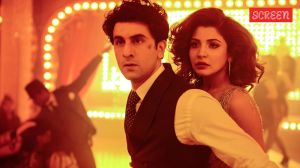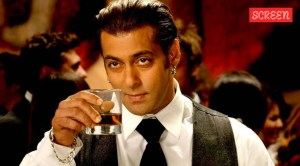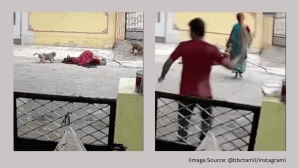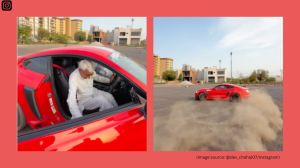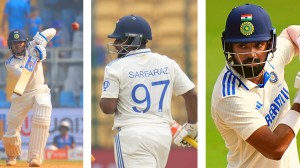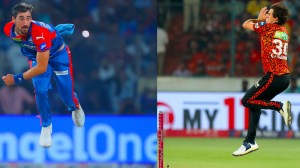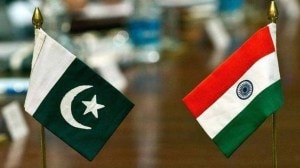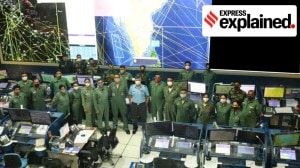What is Eurovision? Europe’s glitter-soaked song contest where pop meets politics
The 2025 Eurovision Song Contest kicks off on Sunday with a splash of glamor, a ‘turquoise carpet’ parade welcoming competitors from all 37 participating countries.
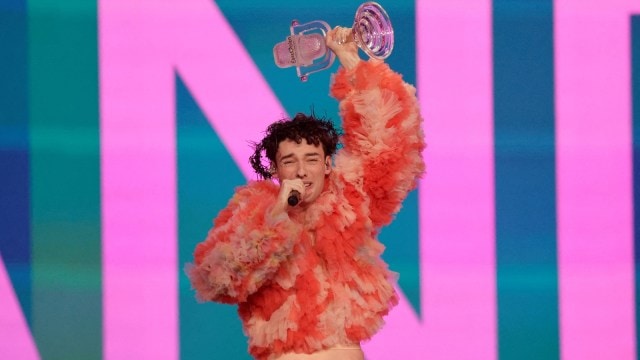 Nemo representing Switzerland celebrates after winning during the Grand Final of the 2024 Eurovision Song Contest, in Malmo, Sweden, May 12, 2024. (Image: Reuters)
Nemo representing Switzerland celebrates after winning during the Grand Final of the 2024 Eurovision Song Contest, in Malmo, Sweden, May 12, 2024. (Image: Reuters)Eurovision, the beloved annual song competition, invites each eligible country to submit an original song under three minutes to represent them. The show is typically hosted by the previous year’s winner and unfolds over three nights: two Semi-Finals and one Grand Final.
In the semi-finals, contestants are split between the two nights, with ten acts from each night advancing to the Grand Final. There, they’re joined by six pre-qualified countries: the ‘Big Five’ (France, Germany, Italy, Spain, and the UK) and the previous year’s winner.
National juries and public phone votes then combine to decide the winner – who earns the glory, the trophy, and the costly privilege of hosting the next contest. As one quip goes, the winning nation earns the privilege of spending a stupid amount of money to host it the next year.
Eurovision is best known for its fizzy pop songs, wild outfits, and celebratory tone but under the glitter, politics often peek through. While organisers insist the contest is apolitical, history suggests otherwise. From political messaging in songs to the expulsion of Russia in 2022 over its invasion of Ukraine, the event has long mirrored global tensions.
Despite Eurovision’s claim of neutrality, the voting process has faced its fair share of criticism. Over the years, allegations have persisted that nations often vote for their friends rather than based on merit, with like-minded or neighbouring countries favouring each other. As the BBC noted, politics and alliances “often benefit countries through like-minded or local nations handing them top marks.”

Ahead of the big night, the BBC surveyed this year’s entries:
The UK’s offering, ‘What the Hell Just Happened’ by Remember Monday, is described as “a souped-up, full throttle pop anthem, it cherry-picks the best bits of Queen, Andrew Lloyd Webber and the Beatles.” Whether it wins or not, the song has, as the BBC put it, “given headline writers a gift.”
Sweden’s KAJ is “sweating it out at the top” with Bara Bada Bastu, an ode to the healing power of saunas, featuring dancers clad in towels. “Unreasonably catchy,” the track even won the affection of ABBA’s Björn Ulvaeus, who’s been singing it “in his own private sauna.”
Ireland brings a more unusual theme with Laika Party, a trance-pop tribute to the Soviet space dog sent to die in orbit – equal parts dance track and dark history lesson.
Meanwhile, a handful of contestants are “trying to sneak smut past the censors,” writes the BBC. Leading the risqué charge is Malta’s Miriana Conte with Serving, a pounding club anthem not-so-subtly loaded with innuendo.
Amid the spectacle, Eurovision 2025 is also marked by deeply personal stories. Three contestants are cancer survivors, and their songs speak of grief and resilience.
“French singer Louane captures it best,” the BBC notes. Her track Maman is an intimate conversation with her mother, who passed away when Louane was just 17.
Immigrant voices also take centre stage this year. Shkodra Elektronike, an Albanian duo now based in Italy, blends traditional music from their hometown of Shkodër with futuristic electronic beats.
Taking a joyful route is Dutch singer Claude. A refugee from the civil war in the Democratic Republic of Congo, Claude arrived in the Netherlands at age nine and discovered Eurovision while living in a refugee center. His entry, C’est La Vie, is a celebration of survival and his mother’s optimism: “a tribute to his mum, who taught him to see the positive in their situation.”
Israel’s entry continues the country’s tradition of emotional ballads. New Day Will Rise is a haunting piano piece sung in English, French, and Hebrew. The performer, Yuval Raphael, is a 24-year-old survivor of the 2023 Nova music festival massacre, where a Hamas attack killed 378 people and ignited Israel’s ongoing military campaign in Gaza.
As always, Eurovision serves up a blend of sequins, spectacle, and stirring stories, reminding viewers that beneath the glitter, it’s often much more than just a song contest.
Top Stories
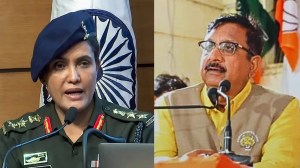
Must Read
Buzzing Now
May 15: Latest News
- 01
- 02
- 03
- 04
- 05



